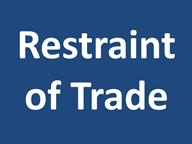Pros And Cons Of Zero Hour Contracts
HRwisdom looks at workforce-related issues around the world.
Today, HRwisdom contributor Joe Errington looks at the pros and cons of zero hour contracts in the UK.
Don’t forget to access all the latest free HRwisdom resources and special gifts – just click here.
Over to Joe . . .
Zero Hour Contracts Examined
New research claims that one million British workers are employed on zero hours contracts. Under these, they are not guaranteed hours and are only paid for the work they put in. Is this a fair system though? What are the benefits and drawbacks? Is there a better solution for businesses?
A zero hour contract is essentially a formal agreement of casual employment. As the name suggests, employees are given a proper contract but with no set hours. In difficult times, it is useful for employers to have this kind of flexibility, but it can be open to abuse.
Retailer Sports Direct has found itself thrown into the stoplight again following the revelations that 90% of its staff are employed this way. With many workers at Sports Direct’s beck and call, not knowing from one day to the next whether they will be working, many have been quick to point the finger and accuse them of exploitation.
So are workers being exploited, or is this an essential means of fighting unemployment? Here are the main arguments for and against the zero hour contract.
Flexibility
Zero hours contracts allow small and mediums sized companies to cope with varying demand. In consumer facing industries, you cannot know for sure how busy you will be tomorrow, and zero hour contracts are a way of reducing overheads and minimising risk.
It is this kind of flexibility that kept many people in jobs during the worst of the recession. Where full time contracts would have required redundancies, zero hours allows employers to shave a little time off everyone’s workload, reducing the wage bill without any drastic measures.
Motivation
Both employers and employees will relay their frustrations at lazy or unmotivated colleagues. In the same way that a zero hour is open to abuse from employers, full-time contracts can be abused by employees.
Unproductive workers cost companies thousands, and heap more pressure on their colleagues. As a result, many employers are reluctant to offer staff a full-time contract unless they are 100% sure they are right for the job. Another way which zero hour contracts help to minimise risk.
Better Than Casual
Most UK companies will need to employ casual labour at some point; whilst technically illegal, this is necessary and should be tolerated to a point.
The casual labour market costs the government millions in unpaid tax though. Zero hour contracts are a way of bringing this back above ground, recouping money for the government and helping to protect worker’s rights.
Exploitative
In times of economic hardship, more people are willing to take any job available to them. Many unscrupulous employers know this and use zero hours contracts as a way of reducing costs at the expense of their employees.
By employing people this way, they can get around many employee’s benefits which we now take for granted. Sick pay, holidays and pensions are all avoided, affecting the financial security of many workers.
Damages Economy
Workers who do not feel financially secure are less likely to spend money. The decision to buy a home for example, will be put back for a few more years, hindering our economic growth.
With the lack of quality, secure jobs available, there is little incentive for people to get back to work. Although living off benefits is not ideal, it is much more stable than a job with no guaranteed hours.
The Solution
Employers, unions and the government need to come together to reach an agreement that is in everyone’s best interests. There are ways in which a company can stay flexible, without compromising job security.
Flexible hours contracts allow employers tailor their rotas to meet varying demand, while at the same time offering their staff a guaranteed income. For smaller businesses, or those affected by seasonal changes, this can be an ideal way of reducing risk for both their employees and themselves.
For larger organisations, outsourcing peripheral parts of their business may be the answer. Specialist facilities management services can take care of tasks such as cleaning, catering and security, allowing companies to offload the risk and focus on their core functions.
HRwisdom
Joe Errington is a marketing executive for MITIE, a strategic outsourcing company who specialise in facilities management.











